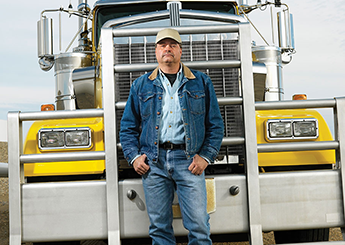Truck drivers pay out of pocket for sleep apnea screenings: survey

Arlington, VA – The majority of commercial motor vehicle drivers who participated in a study to screen for obstructive sleep apnea paid some or all of the costs involved with the screening, according to the results of a recent survey conducted by the American Transportation Research Institute.
The findings highlight the need for the Federal Motor Carrier Safety Administration to keep costs in mind while considering a proposed rule related to sleep apnea, said ATRI, which is the research arm of the American Trucking Associations. In March, FMCSA and the Federal Railroad Administration issued an advance notice of proposed rulemaking that seeks to establish requirements aimed at improving safety for drivers and operators with the condition. Sleep apnea is a respiratory disorder that disrupts sleep and may hinder alertness during the day.
Some of the findings from the survey:
- 53 percent of CMV drivers who were referred to the sleep study paid an average of $1,220 in out-of-pocket expenses.
- A Continuous Positive Airway Pressure machine was the most common treatment prescribed for drivers who were diagnosed with sleep apnea.
- Of the drivers with severe sleep apnea who used a CPAP, 84 percent reported that the device helped them sleep better, 71 percent said they felt better when they woke and 75 percent have lower blood pressure.
- 64 percent of drivers who have been tested for sleep apnea believe federal guidelines for referring drivers for screening are too broad.
“ATRI’s research clearly shows what my fellow drivers and I have been experiencing,” Owner-Operator Independent Drivers Association member Barbara Beal said in a press release. “The costs associated with sleep apnea screening and treatment are not inconsequential for drivers, and the flexibility to utilize lower-cost options for both screening and treatment will be critical if FMCSA moves forward with a formal rulemaking.”
Post a comment to this article
Safety+Health welcomes comments that promote respectful dialogue. Please stay on topic. Comments that contain personal attacks, profanity or abusive language – or those aggressively promoting products or services – will be removed. We reserve the right to determine which comments violate our comment policy. (Anonymous comments are welcome; merely skip the “name” field in the comment box. An email address is required but will not be included with your comment.)

